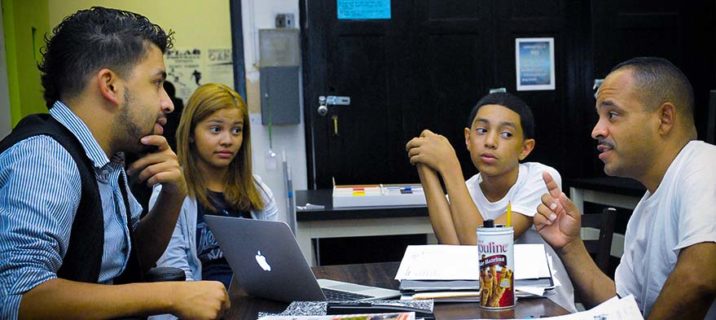I am both a parent and a teacher, so I find myself in an interesting place regarding parent trust towards teachers. I’ve explored the complexities of building trust with my daughter’s teachers, while simultaneously experiencing that parents develop and gain trust in me as their children’s teacher. I have gained insight in both experiences because of the parallels I have observed that have helped me become, both a better parent and a better teacher.
As a parent, I have always sought two things in my daughter’s teachers: passion and commitment. I find myself committing all my trust to teachers that show a love for students. I once heard of a principal who said: “I can teach an educator how to deliver a lesson, but I cannot teach an educator how to love children.” Those words embody what I seek for in a teacher I can trust. Whether they have been in the classroom for a month, a year, or a decade, I want to know that they love children, even if they are novices. At this point you might be thinking, “Great! Passion for students; love for children — yes, all great, but what about children’s education? Passion is not a substitute for quality education.”
To that, I would respond: yes, you are correct. Passion in an educator is nice, but it is not enough. This is where the second quality comes in: commitment. An educator can be passionate about children, but that passion does not directly translate to good teaching. However, if a teacher is committed to children, I know that they will feel the pressures of improving their practice each day for the sake of the children they love. This is true for an educator stepping into the classroom for the first day, and for an educator who has been in the classroom for decades. These educators understand that changing times demand improvement and innovation in teaching. I try to live out both realities; I want to be passionate about and committed to my students. I believe that these qualities help develop a sense of trust from both students and their parents.
According to Edchoice report “2018 Schooling in America,” teachers “are less inclined to trust their students’ parents and public officials or government agencies.” As a teacher, I do not concur with the majority of educators in America. I have realized that as an educator, I must assume best intentions with parents almost all of the time. Blaming parents for a student’s lack of commitment to education is not useful for me as an educator, or for parents who, most of the time, are already dealing with situations they cannot control. As a teacher, I must assume that parents are already doing everything they can to help their children do their best in my class, so I rely on my trust towards them to excel at my job.
As a parent, this lesson has helped me gain more trust in my daughter’s teachers because if they are assuming best intentions for me as a parent, I have nothing to lose if I assume best intentions for them as teachers. In other words, I assume that my daughter’s teachers are working to the best of their abilities to help my daughter in school because they assume that I am doing my best as a parent to help my daughter at home. This does not mean that I will turn a blind eye to obvious incompetencies, but it does mean that my expectations for my daughter’s teachers are the expectations I would want my daughter’s teachers to have of me as her parent. So, if you are a parent who has difficulty gaining trust in your child’s teacher, consider this: assume best intentions for your child’s teacher, and it will become easier to trust in their work.

